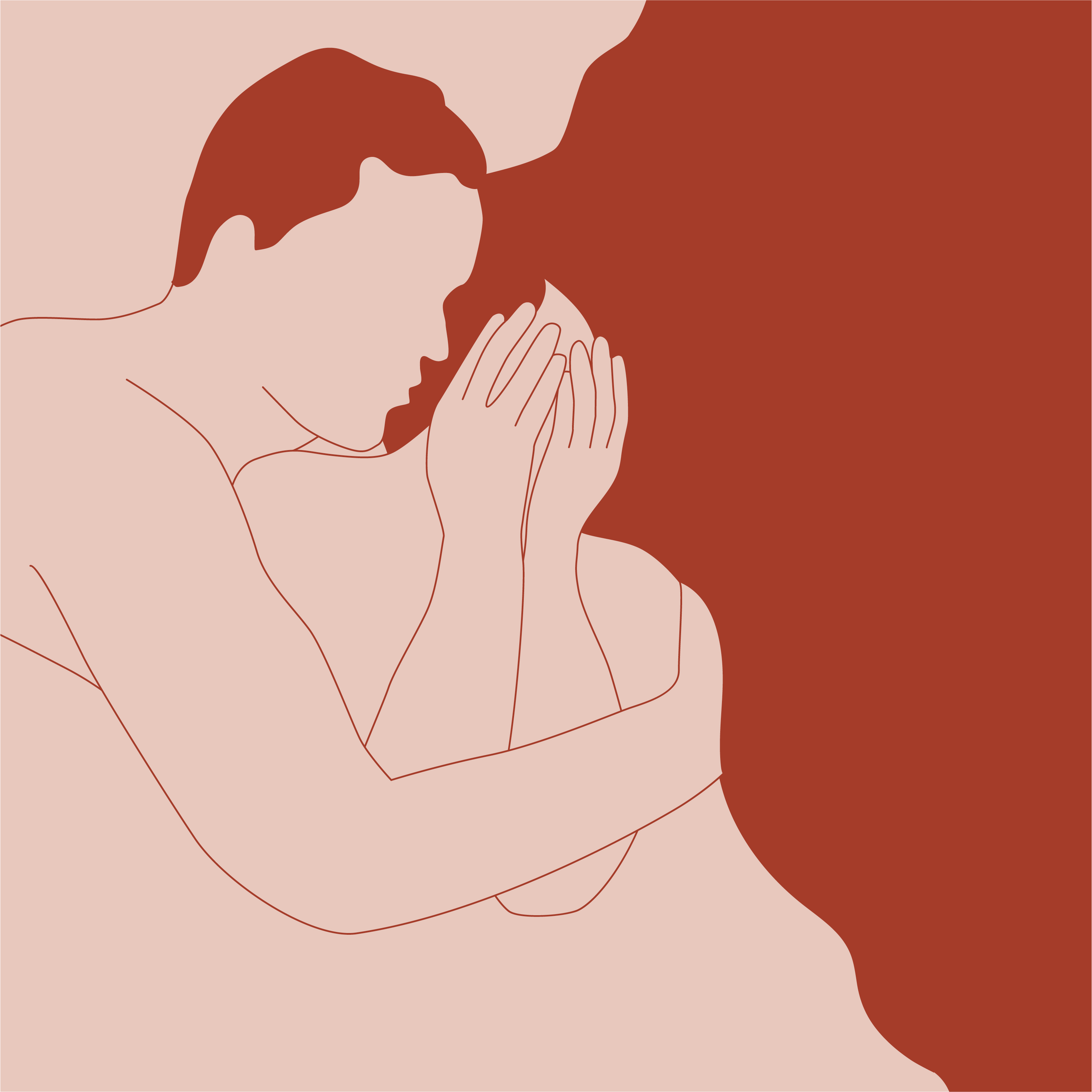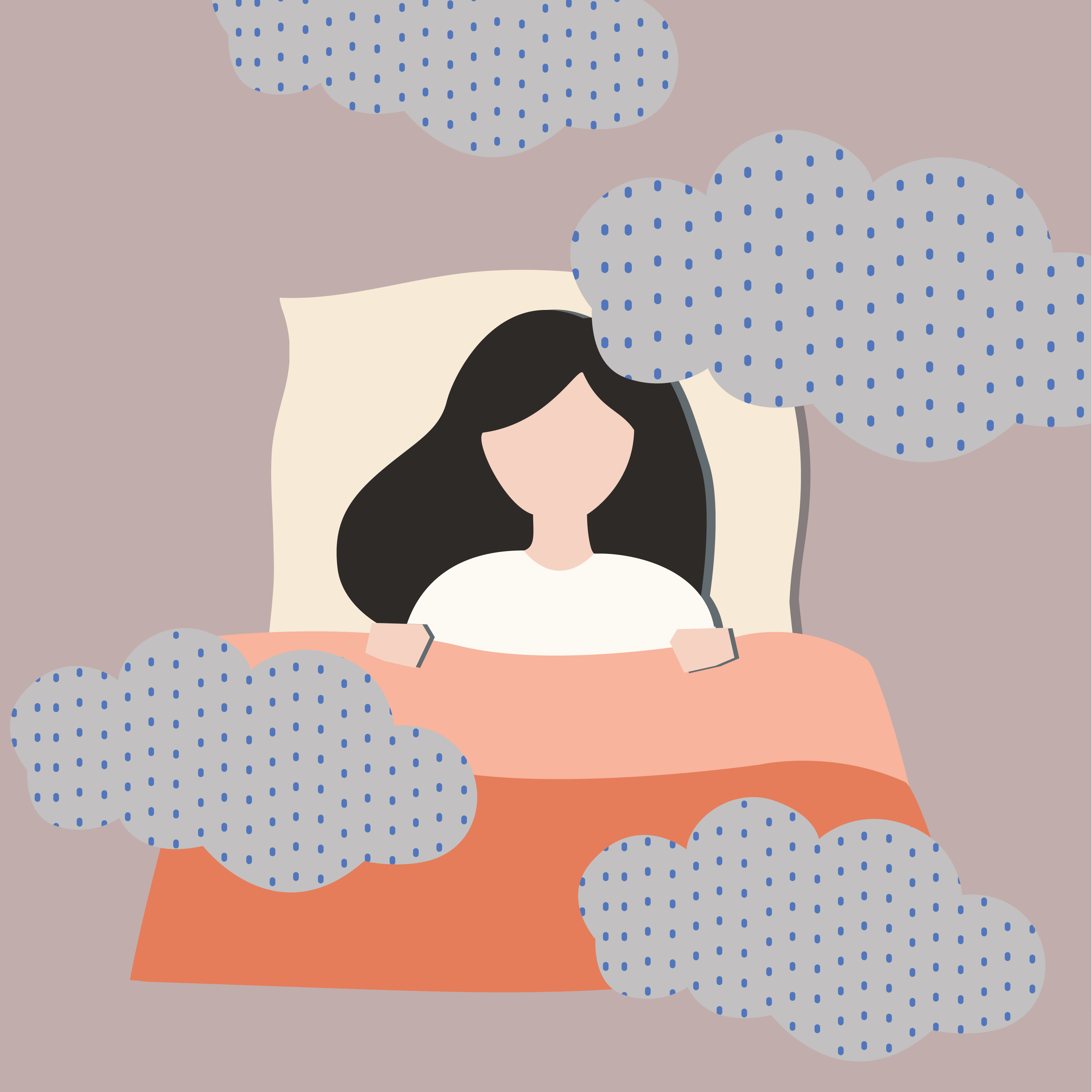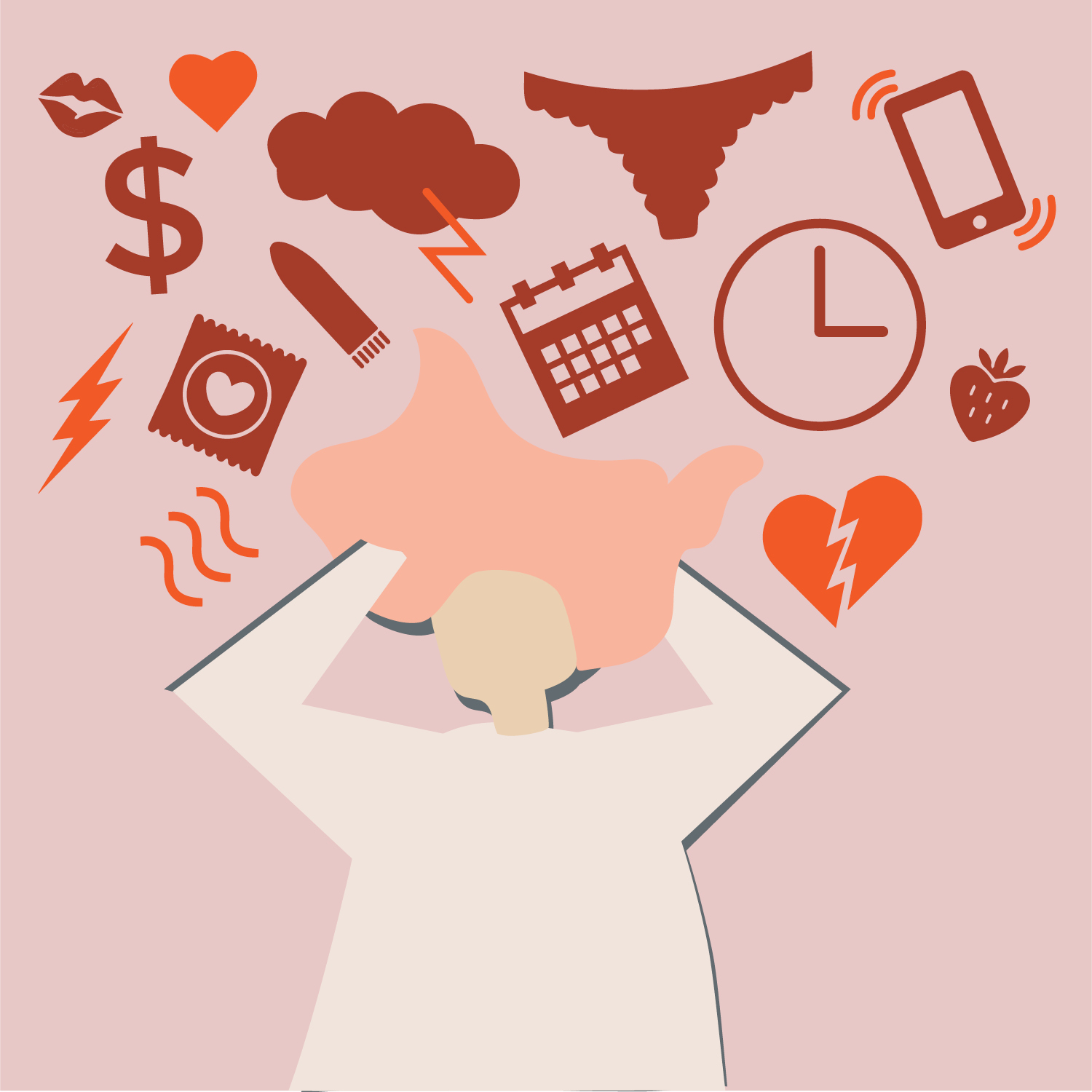Apr 21, 2022
HOW TO PREPARE FOR YOUR FIRST PERIOD
In the third instalment of our First Period series, we guide you through how to prepare for your first period, from looking after your health and wellbeing to choosing the best period products.
Feeling prepared makes any new experience easier and less scary, and getting your first period is no different. To help you prepare for your first period, our series experts, period educator Demi Spaccavento and naturopath Georgia Borowski, share their advice on how to look after yourself before and during your first period, as well as how to choose the best sanitary products for first periods.
How can I prepare for my first period?
Demi: Knowing what to expect can help you feel confident about getting your first period. Things to expect may include finding red, brown or pink blood in your underwear, tiredness, soreness or pelvic pain, and you may feel more emotional in the lead up to your first period. Find out how to use a pad or tampon before your first period, and pack some pads and extra underwear in your school bag. Begin the conversation about periods with a trusted loved one so you can ask the questions that are on your mind.
What can I do to look after myself before and during my first period?
Georgia: Looking after yourself in general will have a big impact on how you feel in the lead up to your periods. Eat foods that are rich in essential vitamins and minerals. A few key nutrients are magnesium, B vitamins and iron. These nutrients can be found in green leafy vegetables, eggs, nuts, dark chocolate, and red meat. Rest when you feel tired and allow yourself some space to be alone. Avoid sugar and junk foods, which are inflammatory and can cause more cramps and bloating.
Demi:
Some tips for your first period:
- Celebrate this milestone!
- Tell a trusted loved one, like a parent or guardian
- Choose a period product/s to use (pads, tampons, period cup, period briefs)
- Use a hot water bottle to help with cramps
- Shower regularly so you don’t smell
- Pack some extra period products and extra underwear in your bag, just in case you have a leak when you’re out
- Listen to the way your body feels. If you feel like putting on pyjamas, eating some food and watching a good movie, do it!
- Download a period tracking app so you can keep track of when your period comes and what symptoms you experience.
How do I choose the best period products for first periods?
Demi: It’s important for our health and the environment for us to make informed choices about period hygiene products. Conventional pads and tampons are often made with cotton that is sprayed with pesticides. These chemicals can be irritating to the skin, cause rashes and reactions in some people, and can impact our hormones. TOM Organic pads, liners and tampons are organic and biodegradable, making them better for your body and the environment.
Choose pads, liners and tampons that are:
- Organic
- Biodegradable
- Plastic-free
- Free from dioxins, bleaches, phthalates, polypropylene
Pads & Liners
How do they work? Pads stick to your underwear and absorb your period blood as it exits the body. Many people like pads when they first start their period as they do not need to be inserted inside the vagina like a tampon.
Pads come in different absorbency levels to suit everyone’s blood flow and come with or without wings. Wings are sticky tabs that lend an extra helping hand in securing the pad to your underwear. Pads can be worn for about 3-8 hours.
Liners are very similar to pads; however, they are much thinner and hold less liquid. Liners are great for people with very light bleeding. Some people also like to wear liners when they have a lot of discharge, as they can help keep you dry.
Pros: External and easy to use; affordable; can be worn overnight safely.
Cons: Cannot wear while swimming; some people don’t like the feeling of a pad; can sometimes move around and be uncomfortable.
Tampons
How do they work? Tampons are inserted into the vagina and absorb your period blood. Tampons come in different absorbency levels to suit everyone’s blood flow.
Pros: Affordable; can be worn while swimming; may feel more comfortable than a pad.
Cons: Risk of toxic shock syndrome (TSS) infection if worn for too long; may be a bit intimidating to use for the first time as they need to be inserted into the vagina; shouldn’t be worn overnight.
Menstrual Cups
How do they work? Period cups are inserted into the vaginal canal, just like a tampon. However, instead of absorbing menstrual blood like a tampon, the menstrual cup collects the blood.
Pros: Holds 2-4 tampons worth of blood; no chemicals, plastics, or pesticides; can be worn for 8 hours; can be worn while swimming and exercising; made from medical grade silicone, making them safe and hygienic; decreases waste from disposable use – one period cup can be used for a few years.
Cons: It may be a bit intimidating to use a cup for the first time as it needs to be inserted into the vagina; it can take a few cycles to master using the period cup; can be hard to change in public bathrooms or at school.
Period Underwear
How do they work? Period briefs are a reusable option that absorbs period blood and keeps you dry without the need for pads or tampons. Period underwear have an absorbent section in them, which is like having underwear with an inbuilt pad.
Pros: Soft and comfortable; holds 2-4 tampons worth of blood; no chemicals, plastics, pesticides; can be worn for longer than a pad or tampon; decreases waste from disposable use.
Cons: Can be tricky to change in public bathrooms or at school; most expensive option for managing your period.
How do I prepare for my first period at school?
Demi: Keep some pads in your school bag just in case you need them. You can store your pads in a small pouch. If you get your period at school and don’t have a pad or any period products with you, you can temporarily use some folded up toilet paper and place it in your underwear. Then visit the school nurse, they will have pads. If you get your first period at school, don’t stress – this happens to many people! Don’t be afraid or embarrassed to tell a teacher that you got your period If you’re feeling worried. They will know what to do to help.
What can I do to be comfortable on my period at school?
Demi: If you get your period young, it can sometimes feel like you’re the only one who has their period. It might also feel scary to have to deal with changing your period products at school, or dealing with some pain or period symptoms at school. It is helpful to remember that you’re not alone. It’s likely that you’re not the first person in your class among your friends to get their first period. Eventually, every girl in your school will have to deal with having a period. Periods may even become a very casual topic of conversation among your friends as time goes on!
Interested in learning more?
Read First period signs and symptoms
—
Demi Spaccavento is a passionate women’s health educator, author, high school teacher and the founder of Bright Girl Health, empowering students to be in tune with their body and never have to dread their period again.
Georgia Borowski is a naturopath, nutritionist and herbalist who specialises in supporting and educating women through hormonal changes, fertility, pregnancy and postnatal care. You can find her at Women’s Health Melbourne where she consults in person, or online at naturopathgeorgia.com.au
Blogs

Jun 08, 2022
EXPLORING PERIOD CARE IN CULTURES AROUND THE WORLD
Our TOM Talks panelist Sabina McKenna explores how different cultures around the world approach period care.
Read More
Jun 08, 2022
STOP APOLOGISING FOR HAVING YOUR PERIOD
Our TOM Talks panelist Mel Mason talks about the importance of not apologising for having your period.
Read More
Jun 07, 2022
STRESSED? NOT SLEEPING? TRYING TO CONCEIVE?
TOM Talk's panelist Georgia Hartmann discussed the links between stress, sleep and fertility.
Read More
Jun 07, 2022
STRESS AND HOW IT AFFECTS YOUR SEX DRIVE
Certified sex coach Georgia Grace is here to unpack the link between stress and sex.
Read More